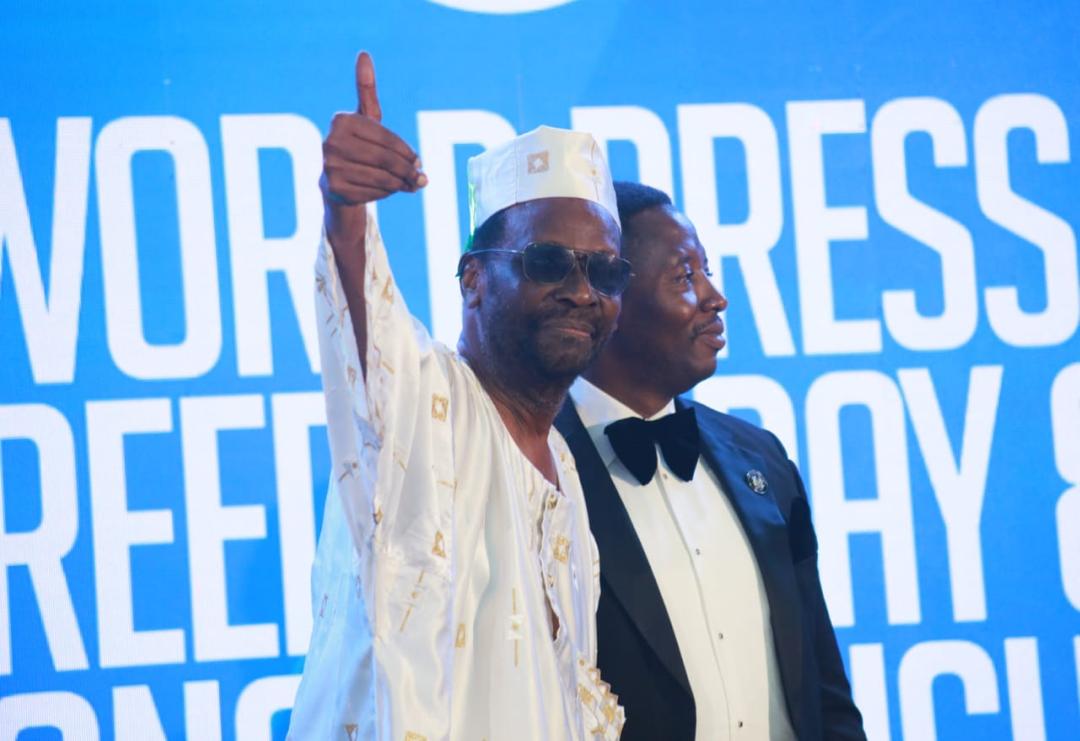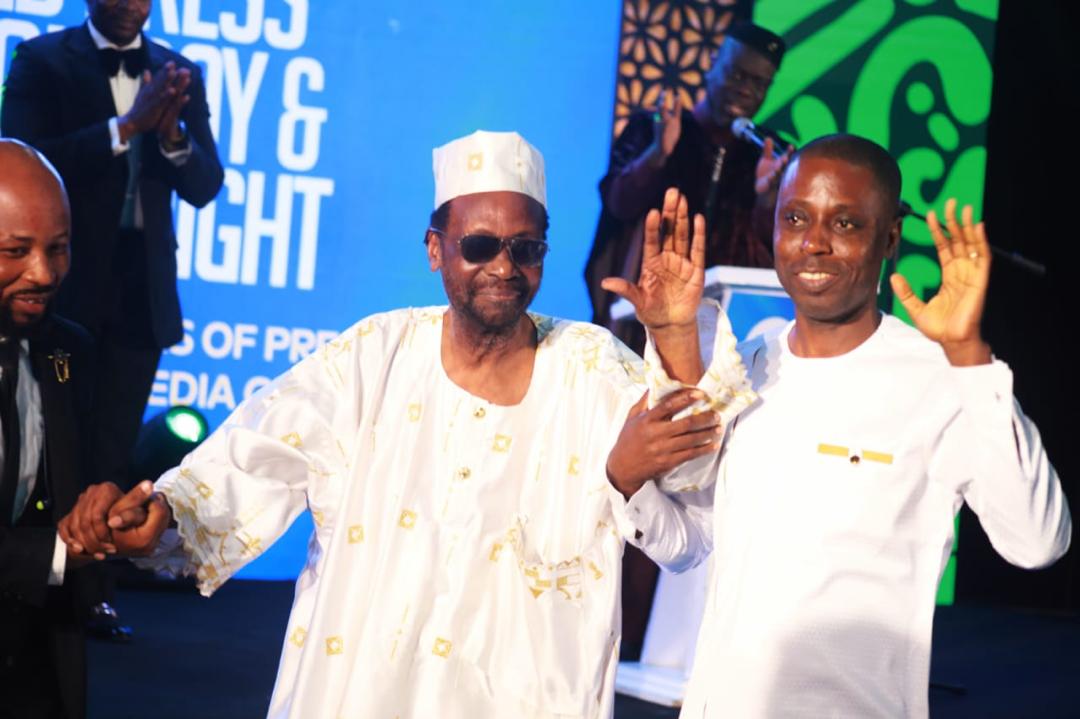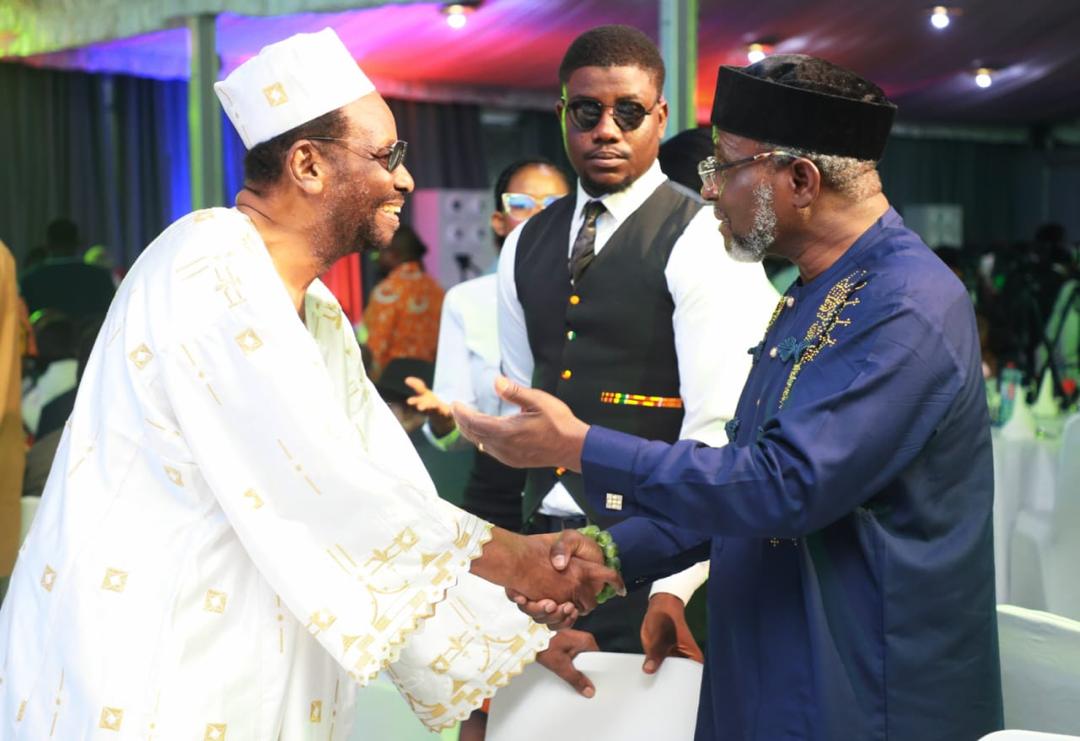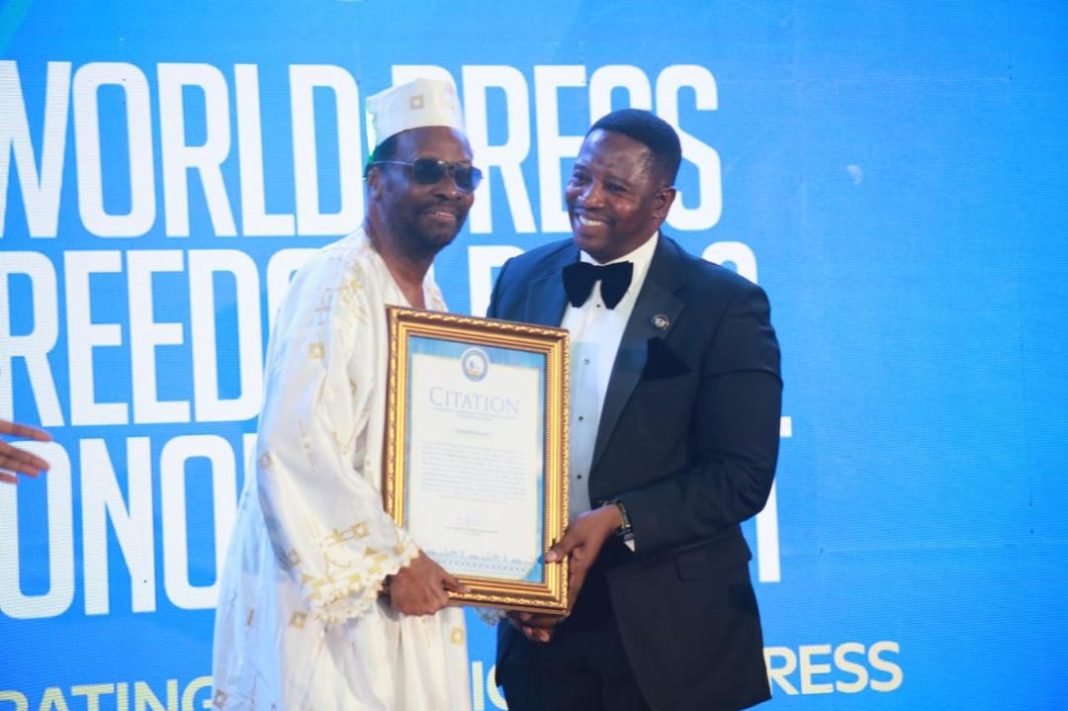At 88, Cameron Duodu stands tall not just in stature but as a towering figure in the annals of Ghanaian and international journalism. His name is woven into the fabric of the profession; his voice still resonates, and his pen remains potent.
As this veteran journalist, novelist, broadcaster, and relentless social critic marks his 88th birthday, I am honoured both personally and professionally to reflect on a life lived with uncompromising integrity, intellectual depth, and an enduring sense of mission.
Born on May 24, 1937, in Asiakwa in eastern Ghana, Cameron’s rise was not forged by privilege but by perseverance. Financial limitations meant he missed out on formal secondary and university education. Yet, driven by determination and a voracious appetite for knowledge, he charted his path.
Starting as a pupil teacher, he pursued his education privately, enrolling in a correspondence course through Rapid Results College in London. Remarkably, he passed his O-Level and A-Level examinations in just 15 months, a feat that underscored his intellectual drive and passion for reading.
“I never thought of myself as handicapped because of the lack of formal classroom education. Reading helped me in my work as a journalist. I just had the urge to read, and I read everything.”
That relentless habit of reading became the bedrock of an extraordinary career. Cameron began at New Nation, a general-interest magazine in Ghana, before joining the Ghana Broadcasting Corporation (GBC), where he rose to editor of radio news.
His return to magazine publishing as editor of the Ghana edition of Drum, the iconic pan-African magazine, marked a turning point. He became the first African to hold that editorial position, giving voice to a continent on the rise.
In the 1960s, Cameron reached national prominence as editor of the Daily Graphic, Ghana’s most widely circulated newspaper. His incisive editorials and fearless commentary earned him admiration and resistance. His influence quickly extended beyond Ghana. As a freelance journalist, he wrote for The Guardian, The Observer, The Economist, Financial Times, The Sunday Times, and De Volkskrant (Amsterdam).
His work featured in South and Index on Censorship magazines, and he became a regular voice on BBC World and the BBC World Service, where he helped global audiences make sense of African politics, economics, and culture.
Today, he continues to write for New African (London), City Press (Johannesburg), and the Ghanaian Times (Accra), proving that neither age nor time has dulled his pen or dimmed his passion.
The Writer and the Word
Beyond journalism, Cameron is a literary force. His 1967 novel The Gab Boys, published by André Deutsch and later translated into German as Flucht nach Akkra, is a coming-of-age story that probes post-colonial identity, ambition, and moral compromise. Now a staple of African literature, it anticipated the literary activism that would later define a generation of writers. He has also written poetry and plays, enriching the African literary landscape.
Asked what his best-ever articles were, Cameron smiled shyly and asked: “How much space are they giving you? Because I nearly lost my life sometimes, chasing stories in foreign countries. I was… look, you need a follow-up piece, I am afraid!”
A Family Tapestry, A Personal Connection
My connection to Uncle Cameron runs deep. Two of his children, Kofi and Yvonne, were my classmates in the 1980-year group. I attended St. Augustine’s College (APSU), Kofi went to Mfantsipim School, and Yvonne to Wesley Girls’ High School All three of us were schooled in Cape Coast, the cradle of Ghanaian academic excellence.
Our familial bonds were further strengthened in Burma Camp. My best friend, Robert Wilson, is the son of Major Letitia Reindorf (Rtd.), and the Duodu children are his cousins. Through that link, our paths crossed early and have remained intertwined. Over the years, I have come to know Cameron’s other children, Yaw, Akwasi, Korieh, Maureen and admire the close-knit, accomplished family he and his wife raised.
The Beer and the Thinkers
I have had the pleasure of many long, illuminating conversations with Cameron. He fondly recalls spirited intellectual exchanges with the late Prof. Kofi Awoonor, poet, diplomat, and former UN ambassador and my late father, Col. Peter Mama Agbeko (Rtd.), a lawyer and army officer who served as the first Director of Legal Services of the Ghana Armed Forces. Their friendship, often accompanied by “some very cold and refreshing beer,” was a meeting of great minds who debated politics, literature, and the human condition with relentless passion.
Still Speaking Truth to Power
Even as an octogenarian, Cameron remains deeply engaged in national discourse. One issue that grips him is galamsey, the scourge of illegal mining that threatens Ghana’s environment and future. He has written compellingly about its dangers, calling it “an existential threat.” On more than one occasion, he has urged me personally to “keep writing on galamsey,” determined to keep the issue in the public consciousness until real solutions emerge.
Faith and the World
Though not born Catholic, Cameron holds a deep admiration for the late Pope Francis, whom he sees as a beacon of humility, moral clarity, and courage, qualities he holds dear. This admiration has shaped a thoughtful and more positive view of the Catholic Church, a perspective he shares with sincerity and reflection.
Recognition from Home
It was fitting that at this year’s Ghana Journalists Association (GJA) World Press Freedom Day and Honours Awards Night, Cameron was formally recognised for his outstanding contributions to journalism. The GJA tribute honoured his pioneering work, moral compass, and decades-long influence on generations of journalists.
Indeed, when my APSU/GIJ classmate and friend Kobby Asmah served as Editor of the Daily Graphic, Uncle Cameron and other distinguished veterans provided invaluable behind-the-scenes guidance and support. Their quiet mentorship helped uphold the values of professionalism and truth that remain essential to journalism today.
A Living Legacy
Cameron Duodu’s legacy is not confined to newspaper bylines or literary pages. It lives on in the people he has inspired, the ideas he has shaped, and the standards he has set. He reminds us that journalism is not just a job, it is a calling. His values, truth, justice, courage, and intellectual curiosity continue to guide many, myself included.
As he turns 88, we celebrate more than a birthday; we celebrate a purposeful life that has enriched Ghana, Africa, and the world. Cameron Duodu is still writing, still challenging, still thinking, and still calling us all to do better.
Happy birthday, Uncle Cameron. You are, and will always be, a national treasure.
Peter Martey Agbeko
